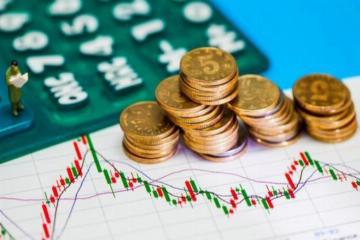Advertisements
The recent move by Central Huijin Investment Ltd., a significant player in China's financial landscape, has sparked considerable interest and speculation within the investment communityOn October 23, Central Huijin made headlines by announcing its acquisition of exchange-traded funds (ETFs) and expressing intentions to increase its holdings in the futureThis strategic maneuver has not only drawn attention to the company but also to the broader implications it has for the market and the dynamics of ETF trading.
The announcement was timed amidst a backdrop of fluctuating ETF market sizes, and a notable spike in trading volumes of related ETFs towards the end of the market day, leading many analysts to estimate that the company purchased around 10 billion yuan worth of ETFsThis concluded buying spree aligns with Central Huijin's historical strategies, previously seen during market fluctuations, such as during the 2013 financial turmoil and the dramatic 2015 stock market crash
Advertisements
While such actions are infrequent, they are interpreted as significant interventions aimed at stabilizing market sentiment during times of extreme volatility.
As a relatively accessible investment tool, ETFs are often viewed as a more convenient option compared to other mutual funds, especially in the context of increasing investor interest and competition among various asset management firmsWith the overall trading volume of ETFs in China nearing the staggering threshold of 20 trillion yuan, the ETF market has become one of the most competitive arenas for mutual fund companiesAccording to market data on October 24, the top three performing stock-based ETFs were the CSI 300 ETF, the CSI 500 ETF, and the Star Market 50 ETFIndustry insiders suggested that Central Huijin's investment aims to bolster market confidence, particularly emphasizing the need for liquidity support in the current financial climate.
The trading activity on October 23 was particularly noteworthy, with stock-based ETFs recording a total transaction volume of approximately 56 billion yuan
Advertisements
Within just two days, broad-based ETFs displayed significantly higher trading activity compared to thematic ETFs, demonstrating a preference among investors for products that provide exposure to a wider market spectrumAmong these high performers, the CSI 300 ETF topped the charts with a remarkable transaction volume close to 10 billion yuan, showcasing the growing popularity of broad-based fundsThis continued on October 24, when the A-share indices collectively saw a modest rebound, and ETF trading volume remained robust.
Generally, when stock markets underperform, interest in ETFs tends to surge, reflecting an intriguing paradox in investor behavior where ETFs can become a safe haven in turbulent timesThe current market environment, characterized by volatility, has led to increased inflows into numerous stock-based ETFs, indicating a shift towards more stable investment productsStatistics reveal that out of 605 tracked stock-based ETFs, 341 reported growth in share volume, signaling a collective bullishness among investors.
Central Huijin's decision to actively buy ETFs is not solely a financial maneuver; it serves to enhance investor confidence amidst market uncertainties
Advertisements
Industry experts argue that the effective purchasing of ETFs by such influential entities provides crucial endorsement for these financial products and demonstrates commitment towards supporting the stock marketThis initiative could ripple through the market, inciting further investments and enhancing overall liquidity, thereby fostering a healthier market environment.
Xuan Shengxiong, a product manager at a public wealth management platform, noted that Central Huijin’s buyback actions could prove beneficial for both the ETF market and the broader stock marketHe elaborated that the firm’s participation indicates an optimism regarding future market performanceIts size and influence mean that it could inspire additional funds and investors to follow suit, significantly increasing market liquidity.
However, the market interpretation of ETF share volume fluctuations can also provide insights into investor sentiment
- Economic Conditions Drive Exchange Rates
- Secrets of Elite Traders' Success
- Drivers of Global Financial Turmoil
- A Review of Global Capital Markets in 2024
- Tesla Loses $280 Billion in Market Value Overnight
With rising share volumes indicating a growing appetite for stock-based investments, it reflects a broader optimism about the viability and recovery of the stock marketYu Xiaobin from Shunshi Investment pointed out that liquidity is one of the most critical aspects currently lacking in the market, as insufficient capital inflow could lead to extended periods of declineAs volatility persists, investor confidence is crucial for a rebound.
Moreover, the strategy behind selecting ETFs is multifacetedExperts stress the importance of differing approaches towards broad-based ETFs versus industry-specific or thematic ETFs, suggesting that careful consideration and selectivity could yield favorable resultsThe consensus among financial professionals is that there are opportunities for robust returns in representatives of high-growth sectors such as technology, healthcare, and renewable energy.
Overall, the recent movements initiated by Central Huijin not only underline the intricate relationship between state-controlled investment organizations and market health but also illustrate a wider narrative of recovery and resilience within the financial ecosystem

- October 31, 2024
Leave Your Comment